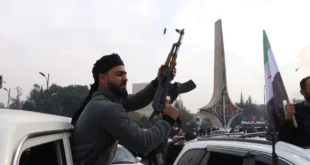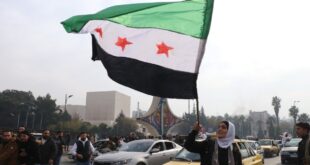Eng. Saleem Al Batayneh
In Jordan, our collective memory is rich with events that have shaped our nation. The plethora of topics and titles that emerge from our surroundings make it easy to find inspiration for discourse and analysis. However, what sets our Jordanian situation apart is that we have been profoundly affected by the repercussions of the events of last October 7, more so than other countries in the region. It is precisely the absurd arguments and illogical approaches that have compelled me to write this article. The official and unofficial state discourse, riddled with fabrications and deception, has contributed to the escalation of tensions and instilled fear through intimidation tactics. This, in turn, has fueled animosity and provocation within the already tense streets, as witnessed during the recent demonstrations near the Israeli embassy, where Jordanians denounced the genocidal war against Gaza. It is crucial for every individual, regardless of their political affiliation, to possess political awareness that steers clear of futility and irrationality.
The facts and outcomes of recent events indicate that Jordan is facing significant challenges across all levels. We cannot help but acknowledge the difficulty of our situation, and it leans more towards pessimism than optimism. The ambiguity that shrouds the future only adds to the complexity we face. At present, we grapple with weak crisis management and a devastatingly low level of confidence. These factors have created an unprecedented state of chaos, both in terms of conditions and ideas, endangering the fabric of our nation.
One of the core issues we face in Jordan is the absence of an institution dedicated to strategic thinking in decision-making. Such an institution, supported by a robust media network, would strengthen the Jordanian decision-making process, ensuring that decisions are based on accurate facts and information, and providing a clear picture devoid of distortions. Unfortunately, in Jordan, we have grown accustomed to missing pieces of the puzzle, leading to a constant state of ambiguity and doubt. The individualism of the state and its reliance on a select few exacerbate the lack of clarity.
Furthermore, we must acknowledge the lack of experience and weak cognitive formation among certain individuals, as well as the existence of a cultural and political class that clings to adolescent political behaviors. These factors overshadow the absence of political power and contribute to a preference for chaos, futility, and the creation of adversaries.
During the recent demonstrations near the Israeli embassy in Amman, the state resorted to fear-mongering tactics, borrowing heavily from fear-inducing vocabulary. However, there is no substantial evidence to support the conspiracy theories that claim incitement of the Jordanian street during these demonstrations. It is essential to differentiate between legitimate concerns and baseless claims. The diminishing role of official media as a reliable source of information has left a void that has been filled by the passionate voices of the Palestinian cause in the streets of Jordan, historically and geographically connected to Palestine.
Jordanians are a knowledgeable and aware people within the region. When presented with factual evidence, they stand by their state and exercise caution. Jordanians do not desire a corrupt internal atmosphere or a descent into chaos. They wish to avoid the painful experiences that have plagued countries like Syria, Lebanon, Yemen, and Libya, leading to massacres, bloodshed, and the destruction of institutions.
Honesty is paramount in addressing our current situation. It is unproductive to dwell on past positions of the state or to engage in empty rhetoric. We did not witness a wave of demonization or incitement against the demonstrators years ago when the government of Dr. Hani Al-Mulki was targeted by various pillars of the state, oligarchies, banks, and those with financial interests.
The wounds are deep, fear is pervasive, and the heart of Jordan can no longer bear the burden. The recent war on Gaza has highlighted the dangerous issues prevalent in the region and demonstrated Israel’s relentless pursuit of any semblance of life on the land of Palestine.
The tricks of the past are no longer effective, and we can no longer afford delay or complacency. Jordan’s stability is at stake. Therefore, it is imperative to reevaluate and restructure our internal affairs. We must establish platforms for dialogue and overcome the crisis situation we find ourselves in. The solution to any problem begins with an objective and impartial assessment of reality. The most dangerous type of fear is the fear that paralyzes us and inhibits progress. History’s lessons, both nearby and distant, serve as a compelling testament to the urgency of our situation.
It is time for Jordan to rise above its challenges, foster unity among its people, and work towards a future of stability, prosperity, and peace.
Eng. Al Batayneh was a member of the Jordanian Parliament.
 Geostrategic Media Political Commentary, Analysis, Security, Defense
Geostrategic Media Political Commentary, Analysis, Security, Defense





